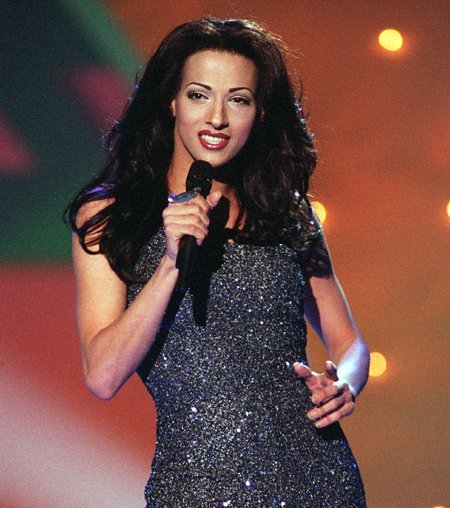How a Trans Israeli Pop Star Changed Eurovision Forever
Dana International's Winning Preformance of "Diva", Eurovision 1998
In 1998, amidst the pulsating beats of pop culture—marked by Madonna's "Ray of Light" and Geri Halliwell's exit from the Spice Girls—a dazzling moment unfolded at the Eurovision Song Contest in Birmingham’s National Indoor Arena. Dana International, a young Israeli artist, took center stage with her song “Diva,” capturing the essence of a rapidly evolving Eurovision landscape. Her performance, characterized by its iconic, campy flair, would have been a viral sensation today, brimming with meme-worthy moments.
Dana International, a trans woman from Israel, not only mesmerized the audience with her performance but also became a symbol of Eurovision's transformation. Her victory marked a significant shift away from the contest's conservative past towards a celebration predominantly centered around queer culture, encompassing everything from camp extravagance to poignant expressions of love.
Vaughan Staples, president of the UK Eurovision fan club and a lifelong follower of the contest, traces his passion back to this transformative year. Witnessing Dana's victory as a young boy in Birmingham, he felt a profound connection to the event, recognizing it as a beacon of change and inclusivity within the LGBTQ+ community.
Dana International's groundbreaking role as a trans woman in the public eye is closely tied to her Jewish and Israeli background. Born in Israel to a Yemenite Jewish family, she grew up in a modern, predominantly Jewish city, Petach Tikva, reflecting the diverse ethnic background of Israel itself.
Dana's rise to fame began in the mid-1990s, culminating in her historic victory at the 1998 Eurovision Song Contest with her song "Diva." Her participation and success in Eurovision were significant not just for her career but also for the visibility of transgender individuals in mainstream media. Despite facing opposition from conservative segments within Israel, including the Orthodox Jewish population, her win was a moment of national pride and a symbol of progressive values within the Israeli context.
Eurovision has since evolved from its more reserved, theater-based beginnings to become a vibrant arena of visibility for the LGBTQ+ community. The ability for fans to stand, dance, and be seen on television, coupled with the participation of openly LGBTQ+ performers, has cemented the contest as a vital space for representation.
This inclusivity is echoed by Neil Farren, editor at the Eurovision fan website Eurovoix, who notes that while Eurovision was originally conceived to foster peace and tolerance, it inherently appealed to the LGBTQ+ community, who cherish these values deeply. Over the decades, Eurovision has increasingly embraced this ethos, shifting from conservative music styles to more provocative and inclusive performances, culminating in moments like Dana International's victory and the impactful presence of performers like Conchita Wurst.
Dana's impact extends beyond her music career. She has been a vocal advocate for LGBTQ+ rights, emphasizing the acceptance and integration of transgender individuals in society. Her stance and visibility have made her a significant figure in both the Israeli and international LGBTQ+ communities. She has used her platform to challenge stereotypes and promote a message of reconciliation and acceptance, famously noting that her victory in Eurovision was a sign that "God is on [her] side," urging her critics to embrace forgiveness and acceptance.
For Pedro Santos, a reporter with Eurovision World, the contest's queer-centric perspective is profoundly beautiful. He describes the "Eurovision bubble" as a microcosm of acceptance and inclusion, a safe haven where everyone is free to be themselves without judgment—a sentiment that resonates deeply within the queer community.
Thus, Eurovision remains not just a competition but a celebration of diversity and a sanctuary for those seeking acceptance and joy in their truest forms.
Sourced from PinkNews


